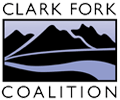
VICTORY! Montana Exempt Well Loophole
Rural homeowners, ranchers, and farmers in Montana and other western states have long relied on a provision of the law that affords them the opportunity to drill a small well without first obtaining a permit. It’s an approach that has made sense for sparse rural developments even though water is scarce in the West and its use is typically governed by a first in time, first in right doctrine.
But during Montana’s residential housing boom of the last decade, developers seized on this “exempt-well” loophole to cut development costs by purchasing agricultural lands and building subdivisions beyond community boundaries. This not only impacts the availability of one of the most precious western resources–water–it also brings all the unwelcome impacts of sprawl.
The Montana legislature never intended the exempt well provision to be used in this manner. The Montana Water Use Act explicitly states that the exempt well provision does not apply to “combined appropriations” of two or more wells from the same source aquifer. But in 1993, Montana’s Department of Natural Resources and Conservation (DNRC) eviscerated this limitation by stating that a “combined appropriation” is only present if the wells are physically manifold or plumbed together.
Since then, the number of “exempt” wells has skyrocketed: approximately 30,000 such wells were drilled during an eight year period from 2000 to 2008. Most of the new wells have been drilled in Montana’s high growth counties (i.e., Gallatin, Flathead, Ravalli, and Lewis & Clark).
In November 2009, WELC petitioned DNRC to close this loophole and amend the definition of “combined appropriation” to bring it into conformity with the plain language and legislative intent of the Montana Water Use Act.
DNRC issued a decision on the petition in August 2010, upholding the validity of the exempt well rule and compelling WELC to file a civil action against DNRC.
On October 17, 2014, the Montana District Court for Lewis and Clark County ruled in WELC’s favor, ordering DNRC to close the loophole in the state’s water well permit rules that subdivision developers and others were using to avoid the permitting process.
On September 13, 2016, the Supreme Court of the State of Montana again ruled in WELC’s favor, affirming the District Court’s ruling and ensuring that the loophole remained closed.
Because of these court victories, subdivisions developers can no longer drill multiple unconnected wells and claim that each well is “exempt” from permitting, by relying on an exemption that was intended only for small, rural uses. This is especially important in “closed basins,” which are already overappropriated.
WELC’s clients in this case, the Missoula-based Clark Fork Coalition, as well as ranchers Polly Rex, Katrin Chandler, Betty Lannen, and Joe Miller, were awarded the Montana Trial Lawyers Association’s 2017 Citizens Award in recognition of their long and successful fight to vindicate the rights of water rightsholders and all Montanans who use and enjoy the state’s waters.
Water too precious to reopen exempt well loophole
This September, on behalf of four ranchers and the Clark Fork Coalition, my colleague Matthew Bishop and I successfully challenged a rule that allowed large developments to bypass water permitting. The state Supreme Court agreed that the rule was out of step with the...
Montana Supreme Court Orders State To Close Loophole To Protect Water Rights
Developers abused loophole for new subdivisions, threatening water availability for family ranches, wildlife, instream flows Late yesterday, the Supreme Court of the State of Montana upheld an Oct. 2014 district court ruling that ordered the Montana Department of...
Photo by feetyouwear/Flickr.

